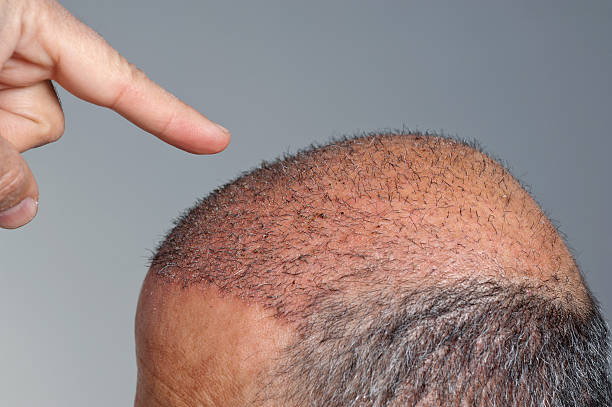Unveiling the Hidden Impact of Chronic Sleep Deprivation
Sleep deprivation has become an epidemic in modern society, with far-reaching consequences that extend beyond mere tiredness. As our lives become increasingly fast-paced and technology-driven, the importance of quality sleep is often overlooked. Yet, chronic sleep deprivation silently erodes our physical health, mental wellbeing, and overall quality of life. This pervasive issue affects millions worldwide, transcending age, occupation, and socioeconomic status. Understanding the multifaceted impact of sleep deprivation is crucial for individuals and society at large, as it touches upon various aspects of human functioning, from cognitive performance to emotional regulation and even long-term health outcomes.

As we entered the digital age, the proliferation of electronic devices and 24/7 connectivity further exacerbated sleep disruptions. The blue light emitted by screens interferes with the body’s production of melatonin, the hormone responsible for regulating sleep. This technological intrusion into our bedrooms has led to later bedtimes and reduced sleep duration for many individuals.
The Neuroscience of Sleep Deprivation
Sleep deprivation profoundly affects brain function, impacting various cognitive processes. Neuroimaging studies have revealed that sleep loss leads to decreased activity in the prefrontal cortex, the brain region responsible for executive functions such as decision-making, impulse control, and attention regulation. This reduction in prefrontal cortex activity can explain many of the cognitive deficits associated with sleep deprivation.
Furthermore, sleep plays a crucial role in memory consolidation and learning. During sleep, the brain processes and stores information acquired during wakefulness. Chronic sleep deprivation interferes with this process, leading to impaired memory formation and decreased ability to learn new information. This has significant implications for students, professionals, and anyone engaged in cognitive-demanding tasks.
The Physical Health Consequences
Beyond its cognitive effects, chronic sleep deprivation takes a toll on physical health. Research has linked inadequate sleep to a host of health issues, including obesity, cardiovascular disease, and type 2 diabetes. Sleep deprivation disrupts the balance of hormones that regulate appetite and metabolism, leading to increased hunger and cravings for high-calorie foods.
Moreover, insufficient sleep weakens the immune system, making individuals more susceptible to infections and illnesses. Studies have shown that people who consistently get less than seven hours of sleep per night are three times more likely to develop a cold when exposed to the virus compared to those who sleep eight hours or more.
The Mental Health Connection
The relationship between sleep and mental health is bidirectional and complex. While mental health conditions like depression and anxiety can lead to sleep disturbances, chronic sleep deprivation can also contribute to the development and exacerbation of these disorders. Sleep loss alters emotional processing in the brain, leading to increased reactivity to negative stimuli and decreased ability to regulate emotions.
Insomnia, a common sleep disorder characterized by difficulty falling asleep or staying asleep, is strongly associated with depression. In fact, people with insomnia are ten times more likely to develop depression compared to those without sleep problems. Addressing sleep issues can be an effective way to improve mental health outcomes and overall wellbeing.
The Societal and Economic Impact
The consequences of chronic sleep deprivation extend beyond individual health, affecting society as a whole. Sleep-deprived workers are less productive, more prone to errors, and at higher risk of workplace accidents. The economic cost of sleep deprivation is staggering, with estimates suggesting that inadequate sleep costs the U.S. economy up to $411 billion annually due to lost productivity.
In addition, drowsy driving is a major public safety concern. The National Highway Traffic Safety Administration estimates that drowsy driving causes about 100,000 car accidents each year in the United States alone. This highlights the urgent need for public awareness campaigns and policy changes to address the issue of sleep deprivation.
Strategies for Improving Sleep Quality
Addressing chronic sleep deprivation requires a multifaceted approach. On an individual level, practicing good sleep hygiene is crucial. This includes maintaining a consistent sleep schedule, creating a relaxing bedtime routine, and optimizing the sleep environment. Limiting exposure to blue light from electronic devices in the evening and avoiding caffeine and alcohol close to bedtime can also improve sleep quality.
On a societal level, there’s a growing recognition of the importance of sleep health. Some companies are implementing nap rooms or flexible work schedules to accommodate employees’ sleep needs. Schools are considering later start times to align with adolescents’ natural sleep patterns. These initiatives reflect a shift in cultural attitudes towards sleep, recognizing it as a vital component of health and productivity rather than a luxury.
In conclusion, chronic sleep deprivation is a pervasive issue with far-reaching consequences for individual and societal wellbeing. By understanding its impact and taking steps to prioritize sleep, we can improve not only our personal health and quality of life but also contribute to a more productive and healthy society. As research continues to unveil the intricate connections between sleep and overall health, it’s clear that addressing sleep deprivation should be a priority in public health initiatives and personal wellness strategies.





